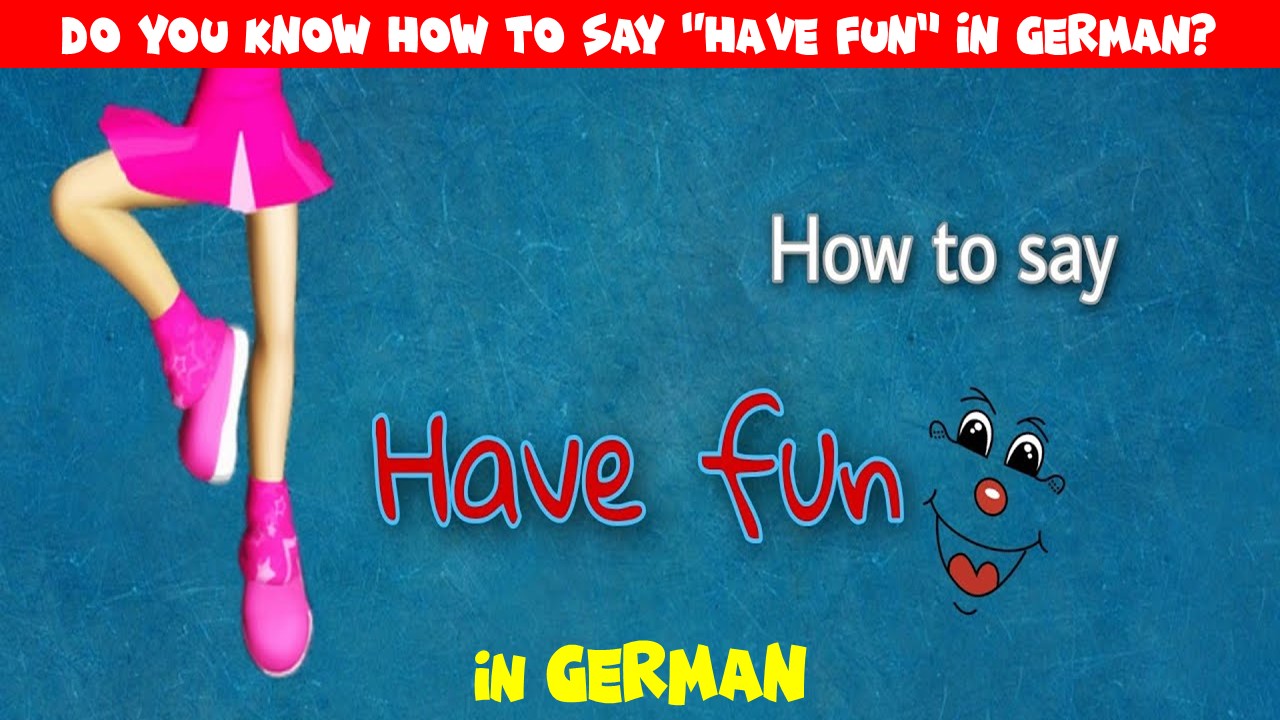Discover the German translation for ‘have fun’ and learn its usage in various contexts to enrich your language skills and communicate more effectively with native speakers.You must know how to say “have fun” in German language.
Learning a new language opens doors to understanding not just words, but also the nuances of cultures and the ways different societies interact. One of the joys of picking up German is the richness of its phrases and expressions. One might wonder, for instance, how to say “have fun” in German. Well, you’re in for a treat!
German speakers, like everyone else, enjoy fun! But expressing ‘fun’ in German differs from English. While English uses ‘fun’ as an adjective, in German, ‘fun’ translates to ‘Spaß’, a noun. So, phrases like ‘Reisen ist Spaß’ (travelling is fun) are incorrect. Instead, verbs like ‘haben’ and ‘machen’ are paired with ‘Spaß’ to convey the idea of having fun.
“Viel Spaß” – The Direct Translation
The direct translation of “have fun” in German is “Viel Spaß”. Pronounced “feel shpahs”, it’s a phrase you’ll hear often. Whether you’re about to embark on a journey, watch a movie, or try out a new hobby, a German friend might bid you with a cheerful “Viel Spaß!”
Breaking it Down
- Viel – This word means “much” or “a lot.”
- Spaß – This translates to “fun.”
Together, they wish someone a lot of enjoyment or a great time in whatever they are about to do.
Other Related Phrases
While “Viel Spaß” is the direct translation for “have fun”, there are other phrases you might encounter, including:
- “Hab Spaß” – This literally translates to “Have fun.”
- “Gute Unterhaltung” – This can be translated as “Good entertainment,” and might be used when someone is about to watch a show or listen to music.
Cultural Insights
It’s essential to know that language is deeply embedded in culture. In Germany, for instance, punctuality, efficiency, and dedication to work are highly valued. However, that doesn’t mean Germans don’t know how to have a good time! From the lively Oktoberfest in Munich to the joyous Carnival celebrations in the Rhineland, Germans certainly appreciate fun and festivities. When they wish you “Viel Spaß”, it’s genuine, and they do hope you have a splendid time.
How and When to Use “Viel Spaß”
You can use “Viel Spaß” in various situations, including:
- When someone is about to watch a movie or a play.
- Before someone sets off on an adventure or trip.
- When you’re parting ways and want to wish someone enjoyment in their upcoming activity.
- Before trying out something new, like a game or hobby.
If you know someone is gearing up for an enjoyable activity, you might want to wish them a good time. In German, conveying this sentiment is straightforward.
Just use the phrase “viel Spaß!” which literally translates to “much fun” but is commonly understood as “have fun!” Especially when you want to keep it general without specifying the activity.
To tailor the phrase to specific activities, combine “Viel Spaß” with the appropriate preposition ‘bei‘ or ‘im‘ followed by the activity in the dative case:
- Viel Spaß im Urlaub – Enjoy your holiday!
- Viel Spaß im Park – Have fun in the park!
- Viel Spaß beim Hockey – Enjoy the hockey game!
- Viel Spaß bei der Schule – Have fun at school!
This structure allows you to convey your wishes more specifically based on the context.
Conclusion
Knowing how to say “have fun” in German isn’t just about learning two words; it’s about embracing the spirit behind them. The next time you find yourself in a German-speaking environment, impress the locals with your heartfelt “Viel Spaß!” And remember, every phrase you learn offers a glimpse into the heart of a culture. Enjoy the journey and, naturally, “Viel Spaß” while learning!

